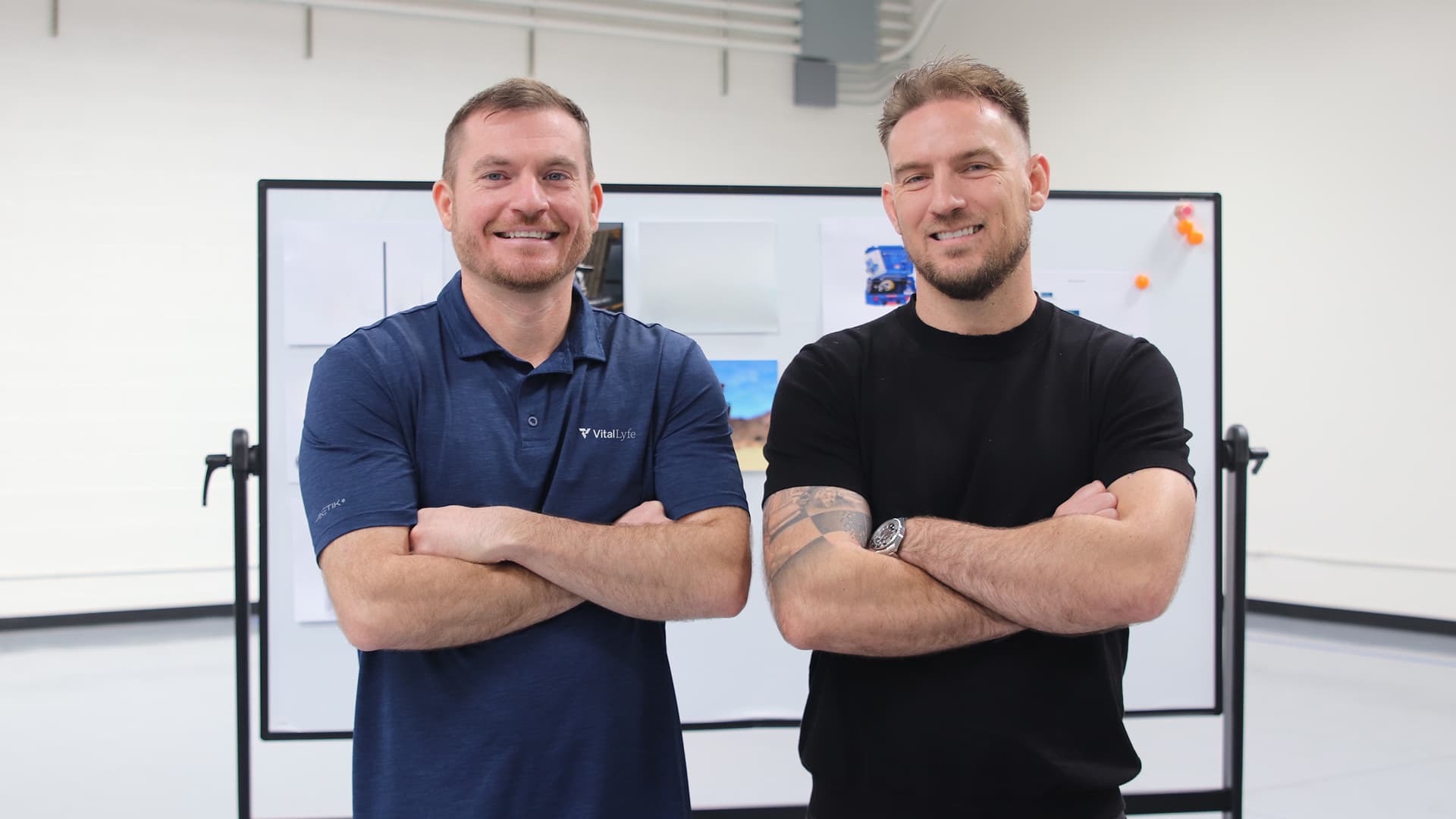Table of contents
Generation Z is marked by its digital savviness, adaptability, and financial consciousness and is set to bring about sweeping changes in the US investment landscape. We’re rethinking the concept of ownership from fractional investing and equity ownership to embracing alternative investment avenues.
We believe Gen Z’s investment approach has been profoundly shaped by our unique and challenging socio-economic experiences. We’ve faced the aftermath of multiple “once-in-a-century” events, like the 2008 financial crisis, where many Gen Zers grew up in families that lost their homes and jobs, and the COVID-19 pandemic—another “once-in-a-century” event less than two decades later. As we begin our adult lives, we’re coping with surging rent, inflation, and unemployment. In our view, these crises have instilled in us a deep skepticism toward traditional financial systems and highlighted the reality of economic volatility from a young age.
Informed by an intuitive understanding of technology, Gen Z is responding to these challenges by seeking out alternative, accessible routes to financial stability through things like fractional investing and equity ownership, digital asset investment, new routes to home ownership, and even assets like virtual gaming skins. These innovative pathways reflect our resilience, adaptability, and ingenuity in our pursuit of financial stability, even in the face of significant economic challenges. Amidst uncertain times we’re determined to attain financial education and security while redefining investment norms.
Fractional investing and equity ownership
We believe one significant way Gen Z is changing the investment landscape is through fractional investing and equity ownership. Fractional investing isn’t new, but Gen Z is exploring interpretations of the concept that stretch the bounds to encompass virtually everything. Technology-enabled access to “pieces” of assets is ushering in creative ways for our generation to own.
In Korea, for example, fractional investment platforms are enabling the youngest generation to trade rights to song royalties with Musicow, own fractional shares of fine art with Tessa (over half of its users are in their 20s and 30s), and even purchase fractional shares of cattle in Bancow. Fractional investing offers a low-cost entry point into the world of investing, providing an opportunity for this generation to start building wealth even with limited resources. In the case of Bancow, for instance, the average Korean cow’s yield rate has stood at nearly 20%.
We believe the unique appeal of fractional investing to Gen Z stems from a confluence of factors that tap into their distinct values, financial limitations, and desire for social impact. Gen Z seeks investments that are personally meaningful and align with their values. In addition, they desire a greater connection to their investments (impact investing), whether that’s supporting their favorite artists, contributing to local industries, or participating in environmental initiatives. Investing in song royalties allows fans to support their favorite artists and feel more connected to the music they love. Investing in cattle supports local farmers and contributes to food security.
Alternative routes to home ownership
Historically, home ownership has been heralded as a crucial element of the American Dream and a significant milestone toward achieving financial stability. However, Gen Z is challenging this age-old narrative.
In the face of an imbalance between income and cost of living and record levels of student debt, we realize that traditional paths to homeownership are not only unattainable for many in their generation but also may not be the most financially prudent. Home prices have outpaced income growth consistently, with the national price-to-income ratio rising to 4.4 in 2020, a rate significantly higher than wage growth and the highest observed level since 2006.
Gen Z’s approach to housing is pragmatic, but it also represents a fundamental shift in mindset and a conscious decision to prioritize financial flexibility and mobility over the symbolic milestone of owning a home. Many in this generation are prioritizing their ability to invest in other areas or maintain a healthy savings buffer over spending on a down payment, property taxes, homeowner’s insurance, and maintenance.
Investing in the virtual world
In an era where digital avatars, virtual reality, and online gaming are increasingly part of everyday life, Gen Z stands at the forefront, recognizing and seeking to leverage the virtual world as an investment opportunity. Our engagement with gaming transcends entertainment—it presents an ownership opportunity within a context where many real-world, tangible assets seem financially unattainable. Investing in digital items that lack physical existence might seem abstract, but for Gen Z, these items hold tangible value and authenticity.
An example of this trend is the thriving market for virtual gaming skins, now worth $50 billion. For Gen Z, these skins are not merely digital adornments but extensions of their identities, manifestations of self-expression, and badges of achievement within their gaming communities. This demand has created a bustling marketplace where skins can be bought, sold, and traded, often fetching substantial amounts. Platforms like SkinCashier facilitate these transactions, enabling Gen Z to monetize their gaming assets, often to the confusion of their parents.
As we see it, by turning to the digital realm, Gen Z is not waiting for traditional investment avenues to become accessible. They are pioneering their own paths, validating the potential of the virtual world to offer real-world financial solutions.
Crypto, blockchain, and digital assets
Just as Gen Z was born into the digital ecosystems of social media and e-commerce, we’re comfortable with the complex landscapes of cryptocurrencies and blockchain technologies. These aren’t simply tools—they are potential opportunities for profound change in the global financial system.
Cryptocurrencies’ journey from a fringe interest to mainstream acceptance has been significant, and Gen Z has been an active participant in it. They see cryptocurrency investment not just as a way to get rich quick or follow a trend but as a strategic move to democratize finance, bring stability in a changing world, and participate in a global financial system. While cryptocurrencies have certainly been criticized for their volatility and associated risk, we think Gen Z’s perception of these attributes is nuanced, understanding this volatility not only as risk but a dynamic feature of a new, unregulated market still finding its equilibrium.
Moreover, Gen Z is leading the charge in exploring the disruptive potential of decentralized finance (DeFi) and non-fungible tokens (NFTs). Gen Z users are drawn to DeFi platforms like Uniswap for their potential to democratize finance, while NFTs offer Gen Z a novel way to invest in digital art and music while aligning with their values of creative expression. Teen artists like FEWOCiOUS and Nyla Hayes have made millions in NFT sales with their identity-focused artwork. The appeal of these technologies lies not just in their financial potential but in their alignment with our generation’s values of inclusivity, transparency, and innovation.
The revolution doesn’t stop there. We believe Gen Z envisions a world where blockchain technology extends far beyond financial transactions. They foresee a future where blockchain underpins voting systems, ensuring transparency and security. They imagine a world where the history of goods can be traced effortlessly, ensuring ethical consumption and production. These are not distant, utopian dreams but tangible goals that we’re eager to achieve.
In embracing cryptocurrencies and blockchain, we think Gen Z is demonstrating their readiness to venture into uncharted financial territories, take risks, and adapt quickly in a rapidly changing world. By doing so, they are not just seeking to secure their financial future but shape the financial opportunity of generations to come.
Breaking the mold and defining their own financial path
We think Gen Z is both financially savvy and not afraid to challenge the status quo. They are diversifying their portfolios, exploring alternative investments, and harnessing the power of digital assets. They recognize the limitations and inequities of traditional financial systems and are not content to accept them as a given. Instead, they are leveraging their digital prowess and values-driven mindset to carve out new paths to financial prosperity and rewrite the financial playbook, making it more inclusive, adaptable, and forward-thinking.
If you’re a founder looking to rewrite that playbook, we’d love to hear from you.







.png)
_r2_v2.jpg)



